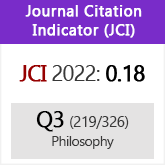Democratic Accountability and Global Governance: Challenging the state-centric Conception of Human Rights
DOI:
https://doi.org/10.3989/isegoria.2010.i43.701Keywords:
accountability, Beitz, global governance, global institutions, human rights, IMF, inclusion, non-state actors, World Bank, WTOAbstract
In this essay I analyze some conceptual difficulties associated with the demand that global institutions be made more democratically accountable. In the absence of a world state, it may seem inconsistent to insist that global institutions be accountable to all those subject to their decisions while also insisting that the members of these institutions, as representatives of states, simultaneously remain accountable to the citizens of their own countries for the special responsibilities they have towards them. This difficulty seems insurmountable in light of the widespread acceptance of a state-centric conception of human rights, according to which states and only states bear primary responsibility for the protection of their citizens’ rights. Against this conception, I defend an alternative, pluralist conception of human rights obligations. I argue that, once the distinctions between the obligations to respect, protect and fulfill human rights are taken into account, no conceptual difficulty remains in holding states and non-state actors accoun table for their respective human rights obligations.
Downloads
Download data is not yet available.
Downloads
Published
2010-12-30
How to Cite
Lafont, C. (2010). Democratic Accountability and Global Governance: Challenging the state-centric Conception of Human Rights. Isegoría, (43), 407–434. https://doi.org/10.3989/isegoria.2010.i43.701
Issue
Section
Articles
License
Copyright (c) 2010 Consejo Superior de Investigaciones Científicas (CSIC)

This work is licensed under a Creative Commons Attribution 4.0 International License.
© CSIC. Manuscripts published in both the printed and online versions of this Journal are the property of Consejo Superior de Investigaciones Científicas, and quoting this source is a requirement for any partial or full reproduction.All contents of this electronic edition, except where otherwise noted, are distributed under a “Creative Commons Attribution 4.0 International” (CC BY 4.0) License. You may read here the basic information and the legal text of the license. The indication of the CC BY 4.0 License must be expressly stated in this way when necessary.
Self-archiving in repositories, personal webpages or similar, of any version other than the published by the Editor, is not allowed.














